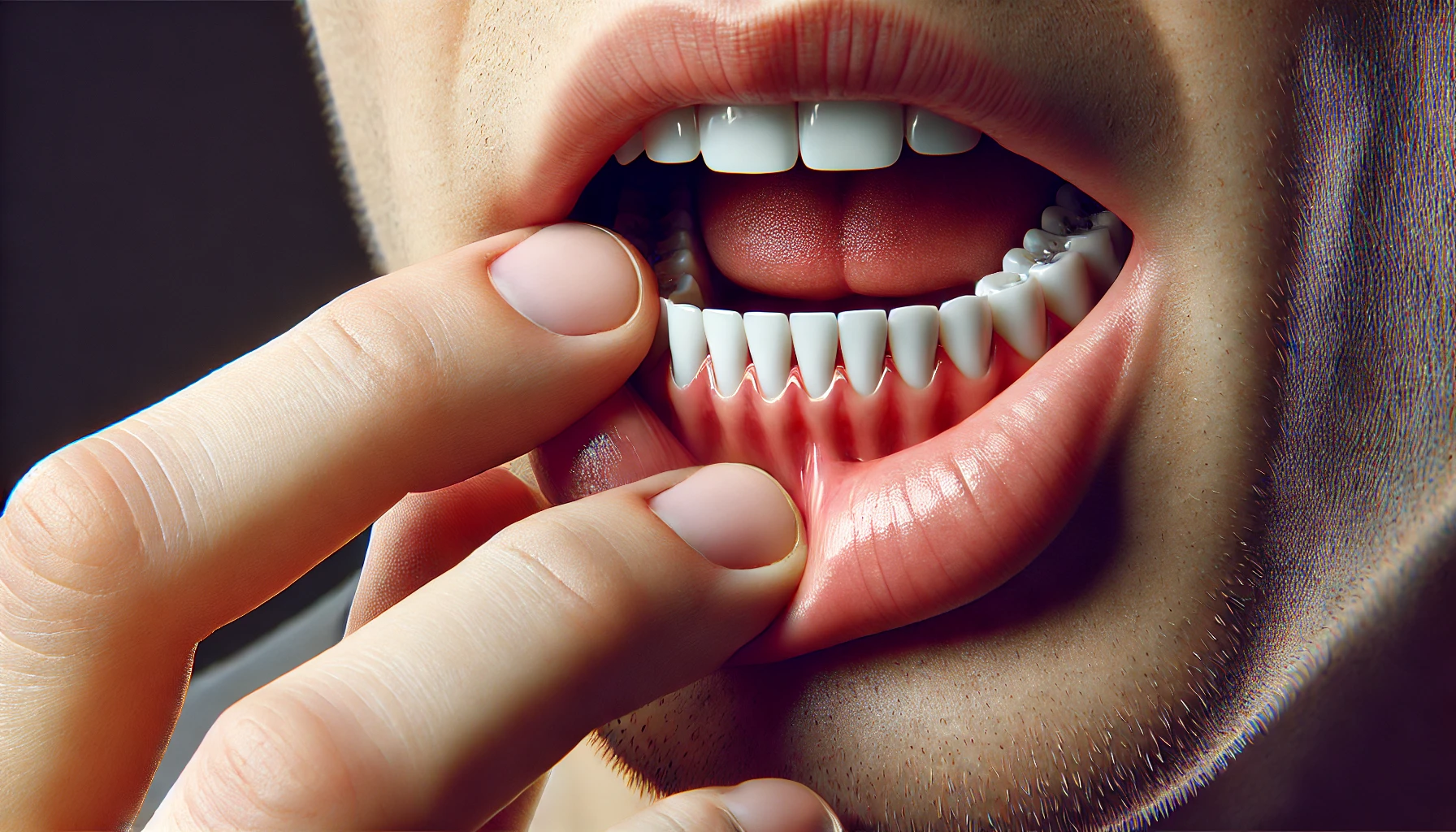This post was written with Consensus AI Academic Search Engine – please read our Disclaimer at the end of this article. Receding gums are primarily caused by dental calculus, poor oral hygiene, and chronic periodontitis. Preventive measures, including regular dental cleanings, the use of mouthwashes, and the implementation of preventive oral health programs, are essential in maintaining gum health and preventing gum recession. Herbal treatments, such as Scrophularia striata mouthwash, offer effective alternatives to conventional methods, providing additional options for managing and preventing receding gums.
Causes of Receding Gums
Dental Calculus
Dental calculus, also known as tartar, is a significant contributor to receding gums. It forms when dental plaque hardens on the teeth, leading to various clinical manifestations such as bad breath, gingivitis, periodontitis, tooth mobility, and ultimately, tooth loss. The removal of dental calculus is essential to prevent periodontal diseases and maintain oral health1.
Poor Oral Hygiene
Inadequate oral hygiene practices can lead to the accumulation of dental plaque, which is a precursor to dental calculus. Regular and thorough tooth cleaning is crucial to prevent the formation of plaque and its subsequent hardening into calculus. Studies have shown that professional mechanical tooth cleaning combined with topical fluoride application can significantly reduce plaque and gingivitis, thereby preventing gum recession2.
Chronic Periodontitis
Chronic periodontitis is an inflammatory condition of the gums caused primarily by bacterial infections, particularly Streptococcus mutans. This condition leads to the destruction of the supporting structures of the teeth, including the gums, resulting in gum recession. Traditional and herbal treatments, such as the use of Scrophularia striata mouthwash, have shown effectiveness in reducing plaque, pocket depth, and bleeding on probing, thereby managing chronic periodontitis and preventing gum recession3.
Prevention of Receding Gums
Regular Dental Cleanings
Professional dental cleanings, including the use of ultrasonic scalers, are effective in removing dental calculus and preventing periodontal diseases. These cleanings should be performed regularly to maintain oral health and prevent the recurrence of calculus1.
Use of Mouthwashes
Mouthwashes, such as those containing Chlorhexidine, are commonly used to control plaque after dental cleanings. However, continuous use of such mouthwashes can have adverse effects. Alternative treatments, such as Ayurvedic practices involving Laksha choorna with Madhu pratisarana and kavala with Tila taila, have shown promising results in preventing the recurrence of dental calculus and maintaining gum health1.
Preventive Oral Health Programs
Implementing preventive oral health programs, especially in children, can significantly reduce the incidence of plaque, gingivitis, and dental caries. Regular professional tooth cleaning and the application of topical fluoride have been shown to be effective in maintaining low plaque index scores and preventing gum diseases2.
Herbal Mouthwashes
Herbal mouthwashes, such as those made from Scrophularia striata, have demonstrated efficacy in treating chronic periodontitis. These mouthwashes improve plaque index, pocket depth, and bleeding on probing, making them a potent alternative to conventional mouthwashes like Listerine3.
Disclaimer
The content presented in this blog is generated by Consensus, an AI-powered academic search engine, and is based on publicly available scientific literature. While every effort is made to provide accurate, up-to-date, and well-researched information, the content is intended for informational and educational purposes only. It does not constitute medical advice, diagnosis, or treatment. Always consult a qualified healthcare professional before making any decisions regarding medical conditions, treatments, or medications. The AI system’s analysis may not cover all perspectives, emerging research, or individual cases, and it is not a substitute for professional expertise. Neither the blog publisher nor the developers of the AI-powered search engine are responsible for any actions taken based on the information provided in this content. Use of this information is at your own risk. Citations to the original scientific studies are included for reference, but these studies should be reviewed in full and interpreted with the guidance of a healthcare or research professional.
If you are experiencing a medical emergency, please seek immediate attention from a healthcare provider.
